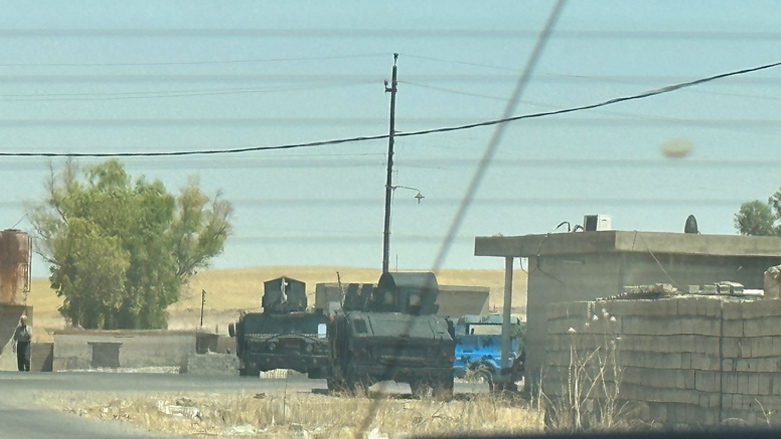Iraqi military 'destroys' irrigation equipment of a Kurdish villager in Kirkuk

ERBIL (Kurdistan 24) – A unit of the Iraqi army raided Palkana, a Kurdish village in Kirkuk province, on Tuesday night and destroyed a villager's irrigation equipment, the rural area's head confirmed to Kurdistan 24.
The unit belonged to the Iraqi Army's 8th Division, which briefly detained Dashti Agha, chief of the village while he was irrigating his corn field, he told Kurdistan 24.
The soldiers "destroyed" the sprinklers and other irrigation equipment, he added.
Per a military order from the division, Kurdish farmers are not allowed to irrigate their fields as Palkana and other nearby villages are part of the disputed territories between Erbil and Baghdad.
In fear of arrest and confiscation of their irrigation tools, Kurdish farmers irrigate their crops at night.
Palkana village is part of the Sargaran plains in northwest Kirkuk province.
Tensions usually flare between Kurdish and resettled Arabs and Iraqi soldiers over land ownership. Iraqi Prime Minister Mohammad Shia' Al-Sudani has intervened a number of times to de-escalate the situation.
In a campaign dubbed Arabization, the former Iraqi Ba’athist regime in the 1970s and 1980s displaced thousands of indigenous Kurds and Turkomen in Kirkuk and its surrounding areas and replaced them with Arab nomads, coming from other parts of the country.
The main goal of Saddam Hussein, the executed Iraqi despot, was to change the demography of the oil-rich province, which the Kurds have claimed for decades.
Bolstered by Saddam-era ownership documents, the resettled Arabs eye reclaiming tens of thousands of dunams of Kurdish lands in the area.
To refute the Arab migrants’ claims, the rural Kurds firmly rely on the Ottoman Empire-issued ownership certificates.
Kurdish farmers in Kirkuk's Bawa village have recently taken up arms to fend off "threats" from ISIS and the Arab nomads.
Additional reporting by Kirkuk reporter Dilan Barzan
